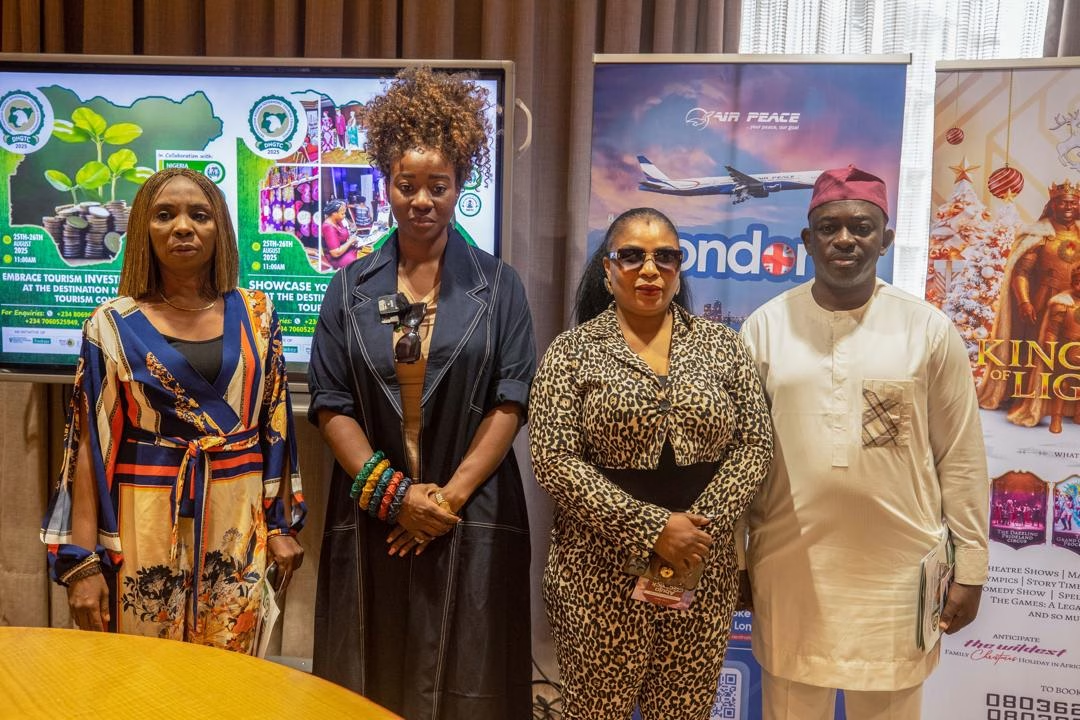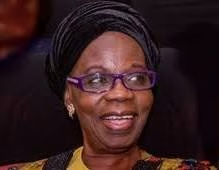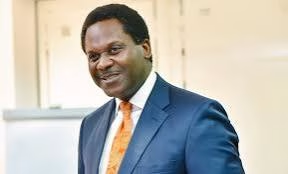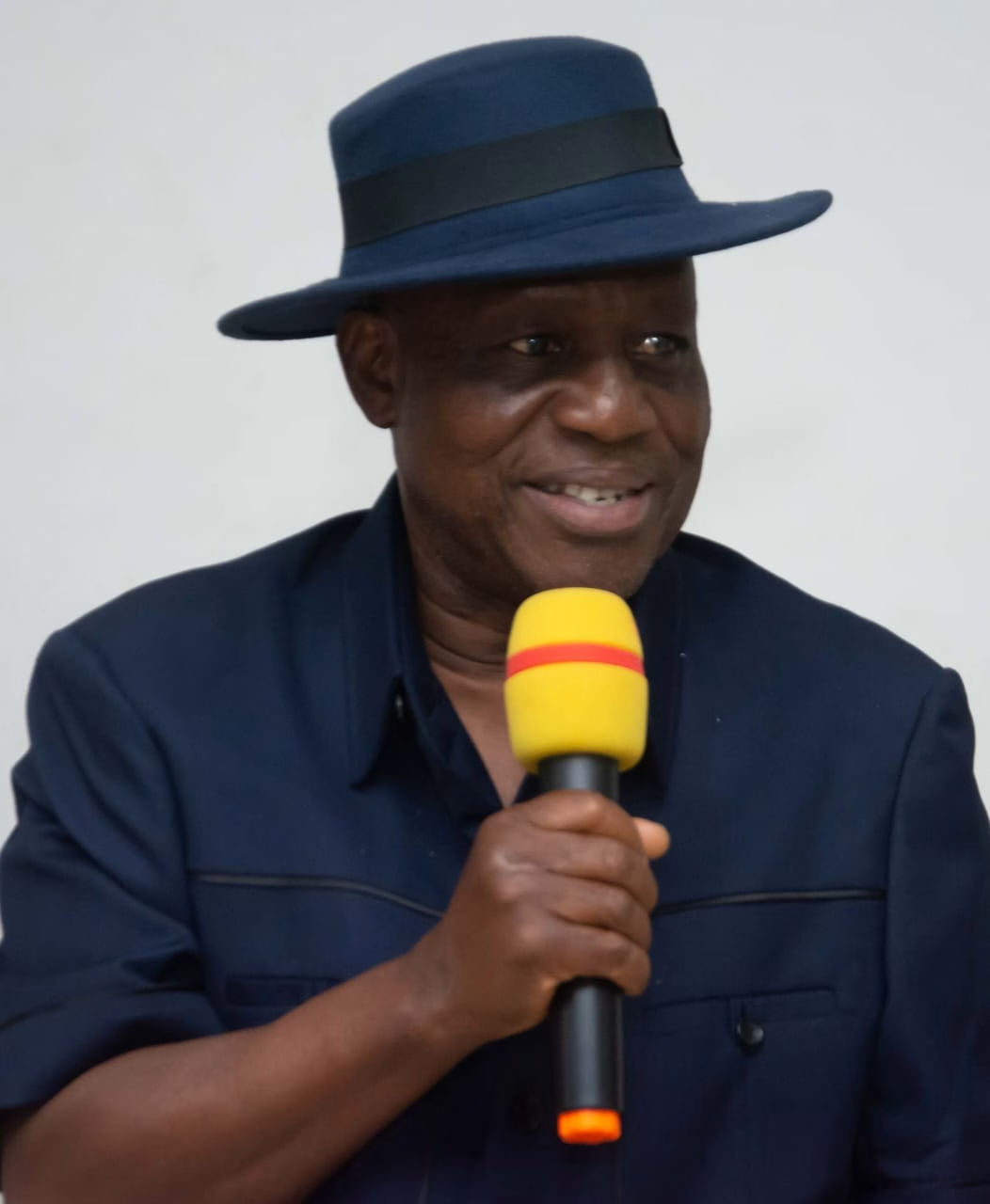By Ebinum Samuel
Highlights of what can be better described as a game – changer evolving in Nigeria ‘s huge and alluring but yet to be harnessed tourism landscape came forth on Monday, August 4, 2025 at the Press briefing hosted by Ambassador Ayo Omotoso, the convener of the 2025 Destination Nigeria Governors’ Tourism Conference.
The eye-opening event which was well anchored by Clara Chinwe Okoro, the Founder and Creative Director of ‘My Beautiful Africa’ was held at the Eko Hotels and Suites, Victoria Island, Lagos. It brought together representatives of different media houses from both the print and electronic arms, as well as dignitaries from the tourism sector of the national economy.
In his insightful address with the focus on: ‘Unlocking Nigeria’s Tourism Potential
Tourism’ he described it as a global phenomenon that offers numerous economic benefits. For instance, he cited African countries such as Kenya, Uganda, South Africa, and Rwanda that have prioritized tourism, recognizing its potential to drive economic growth and development. And he is of the firm belief that Nigeria, with its rich cultural and geographical diversity, is poised to tap into this potential.
Touching tellingly on the importance of tourism he views it as a viable sector that connects with other sectors; bringing value to every aspect of human life. In his candid opinion Nigeria’s unique festival products and tourist attractions can generate significant traffic inflow, and boost the country’s internally generated revenue (IGR).
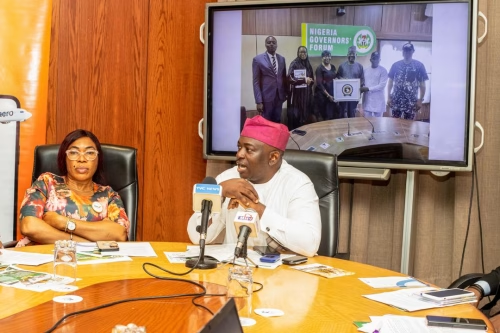
Breaking it down further, he highlighted the interesting fact that each state in Nigeria has a unique comparative advantage in terms of tourism products. From the beautiful skyline to the fascinating flora and fauna, Nigeria’s tourism potential is vast. With over 45 breathtaking waterfalls across the country, the potential for revenue generation and job creation is immense.
With specific regards to the upcoming 2025 Destination Nigeria Governors’ Tourism Conference,meant to attract the state governors as critical catalysts in unlocking the immense potentials inherent in their states, he spelt out the objectives to include the discovery of tourism potential for job creation, exploring tourism as a tool for economic development and facilitating tourism-related traffic. Others include positioning Nigeria on the global tourism map,
showcasing and developing cultural values, in addition to utilizing tourism as a social instrument to promote peace and unity through cultural integration.
The event is billed to hold at the Ladi Kwali Conference, Abuja Continental Hotel, Abuja from 25th to 26th August, 2025. And the theme is: ‘Harnessing Tourism: A Strategic Pathway for Nigerian Governors to Foster Economic Growth and Employment’.
As part of the highlights,the conference will feature cultural performances and music, states’ tourism shows and presentations, creative economy expo as well as
digital innovation tourism forum. Other activities include Pan-African tourism forum, Nigeria domestic tourism expo, Tourism business opportunities networking and Nigerian fashion show. Not left out are Executive tourism conference, Tourism infrastructures roadmap, Climate change on tourism, Destinations security and peace forum, and of course, Nigeria Sustainable Tourism Awards.
As Nigeria continues to evolve as a tourist destination, the DNGTC 2025 offers an essential forum to navigate change, harness opportunities and build a resilient and forward-thinking tourism industry.
Indeed, Omotoso deserves commendation for keeping his passion for tourism alive and active for the past 18 years, as well as breathing life into the dream of Destination Nigeria Governors’ Tourism which came up eight years ago. Also, it is worthy of note
that the upcoming event has attracted Eko Hotels and Suites, Aero Contractor and Air Peace Airlines as well as MTN as worthy sponsors.
The Press briefing also attracted dignitaries such as Annabel Gbenegbara from Eko Hotels and Suites, Sunmonu Gbenga, the Vice President, Federation for Tourism Association of Nigeria for South West ( FTAN ), Ayo Oyoze Baje, President Guild of Public Affairs Analysts of Nigeria ( GPAAN ), Hon. Laide Bakare ( Senior Special Assistant, SSA, to the Governor on Entertainment, Culture and Tourism, Osun State ), Comrade Dada Bankole ( DG, Immaculate Peace Initiative ), Yinka Aderibigbe and John Aigbetoh amongst others.
During the questions and answers session all of them were full of praises for Omotoso’ s patriotic vision now coming to action. They have urged all the state governors to key into the vision and drive it to greater heights.

